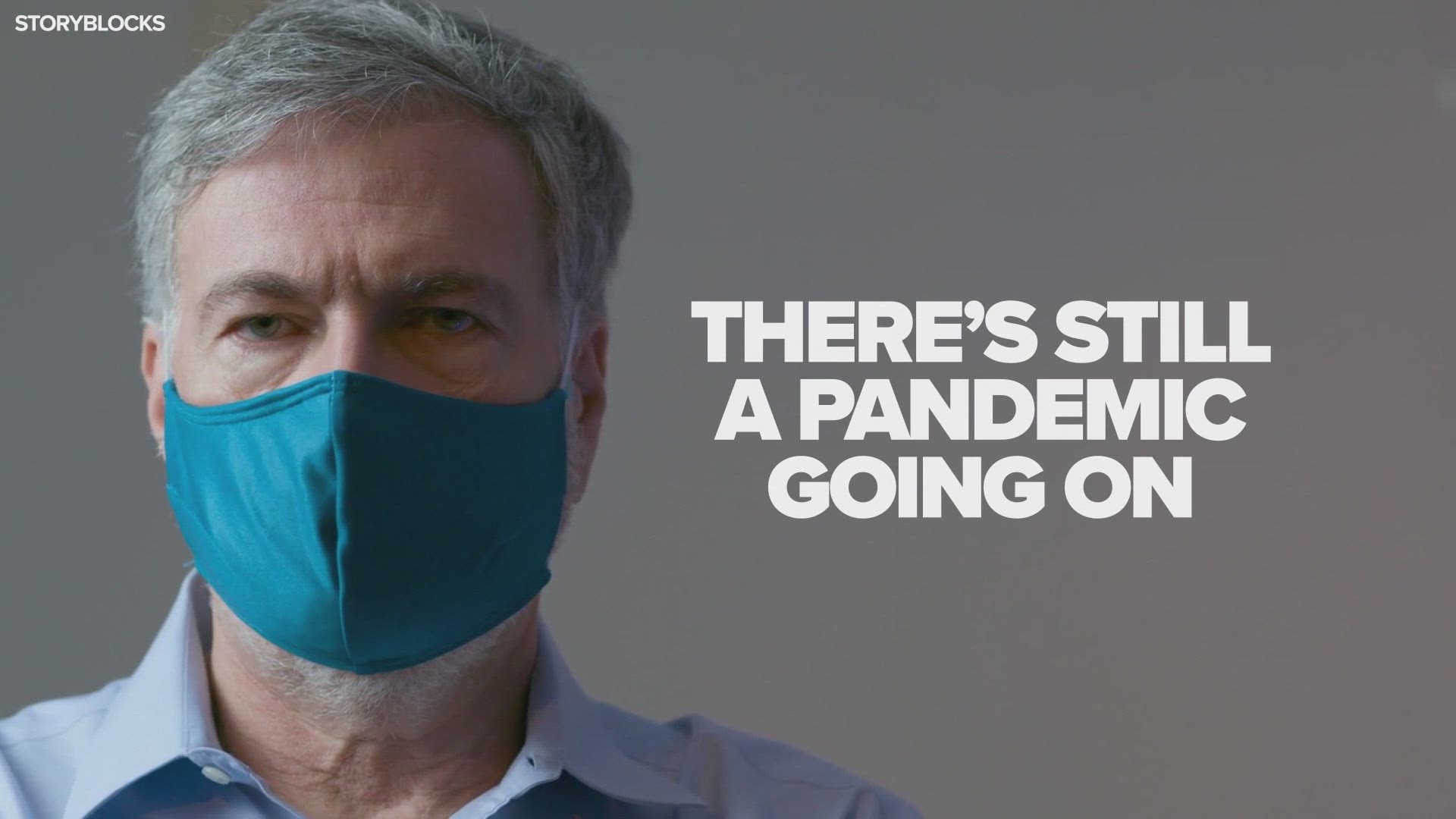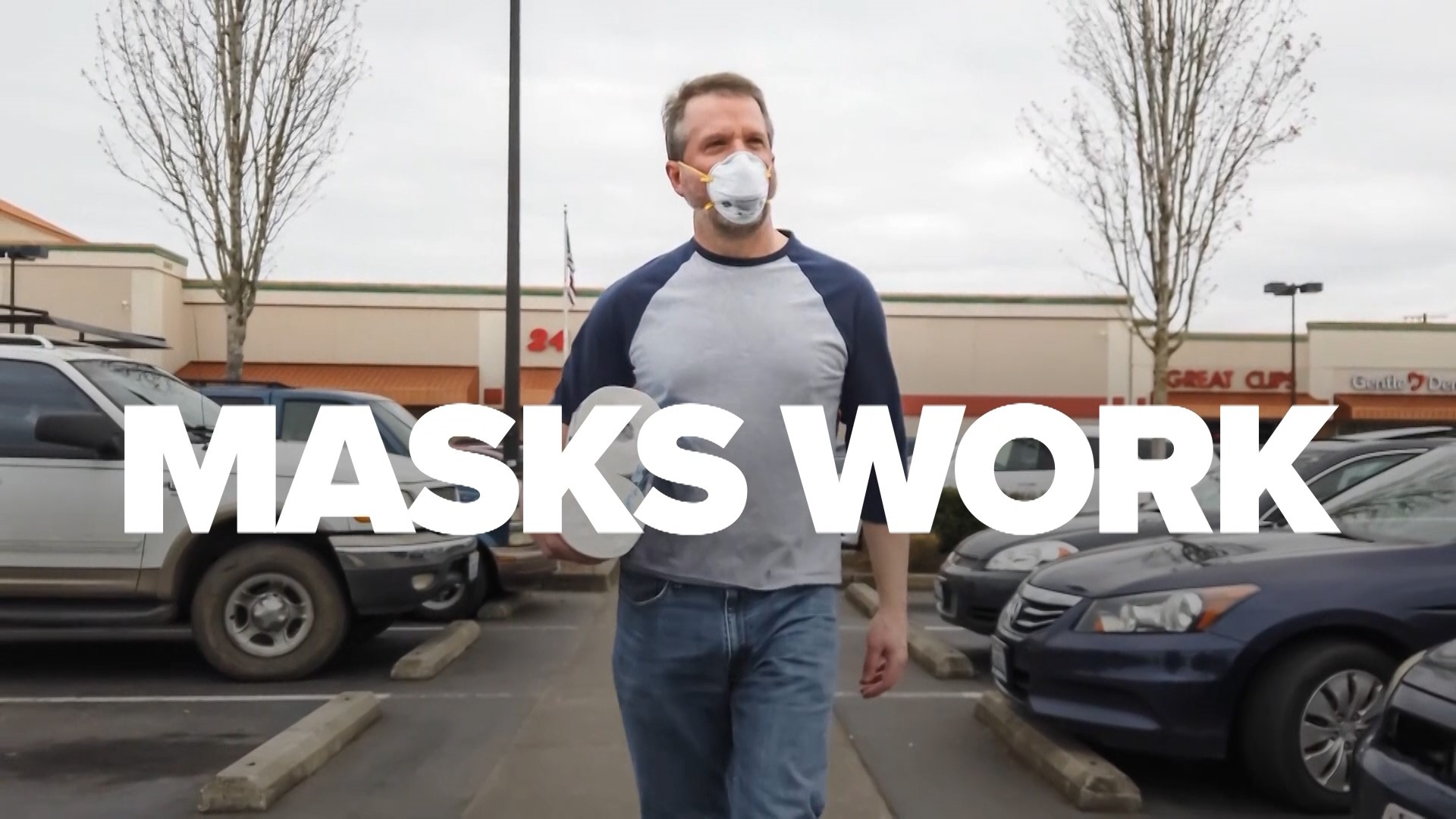WASHINGTON — Wearing a mask not only protects others from the spread of the coronavirus, but it protects the wearer too, according to new guidance released by the Centers for Disease Control and Prevention on Tuesday.
SARS-CoV-2, or COVID-19, is spread through respiratory droplets generated when people cough, sneeze, sing, talk, or breathe. The CDC said a cloth mask can act as a barrier or "source control" by blocking incoming infected droplets from others.
"Adopting universal masking policies can help avert future lockdowns, especially if combined with other non-pharmaceutical interventions such as social distancing, hand hygiene, and adequate ventilation," the CDC said in its document that details scientific evidence.
Studies listed in the CDC guidance claim that masks reduce the risk of transmitting or catching the virus by more than 70% in various instances. One experiment found infected people who spent more than 10 hours on flights without infecting other passengers when masks were used. Another study claims that two symptomatic hair stylists wearing masks didn't transmit the virus to 67 clients who were later interviews.
The new statement added that cloth masks in some studies were just as good as surgical masks at blocking droplets. The CDC said that some materials like polypropylene may create a static charge that captures particles, while other materials like silk could provide comfort and repel moisture droplets.
"Multiple layers of cloth with higher thread counts have demonstrated superior performance compared to single layers of cloth with lower thread counts, in some cases filtering nearly 50% of fine particles less than 1 micron," the guidance said.
The CDC even offered an economic argument, claiming that if 15% of people would wear a mask, then it could prevent the need for lockdowns and "reduce associated losses of up to $1 trillion or about 5% of gross domestic product."
The U.S. has surpassed 1 million new confirmed coronavirus cases in just the first 10 days of November, with more than 100,000 infections each day becoming the norm in a surge that shows no signs of slowing.
The United States has more than 10.1 million confirmed cases of COVID-19, according to data from Johns Hopkins University.
As of Wednesday, the U.S. had more than 236,000 deaths from the virus. Worldwide, there are more than 51 million confirmed cases with more than 1.2 million deaths.
For most people, the new coronavirus causes mild or moderate symptoms. For some, especially older adults and people with existing health problems, it can cause more severe illness, including pneumonia and death.


